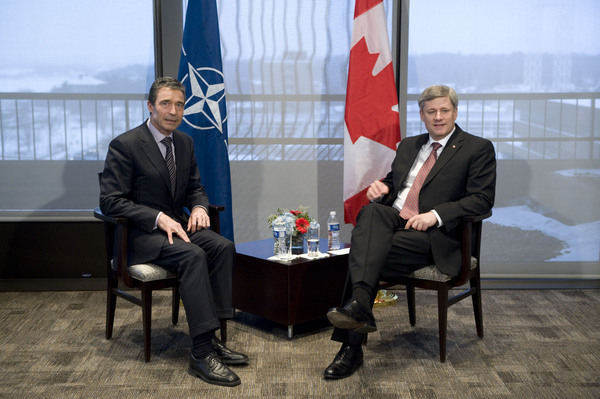
From Steve Saideman, Canadian International Council: Canada’s security almost entirely hinges on the efforts of only one NATO member – the United States, of course. But if Canada is concerned about the Arctic, then other players such as Denmark (via Greenland) and Norway matter as well. To deal with various security challenges in the Far North, these countries would need more than occasional consultation – they would need coordination, exercises, and planning. NATO already does that. Indeed, the cooperation over the skies of Libya was impressive even if the participation rate was suboptimal. How many planes crashed during mid-air refueling? None. That non-accident is not an accident.
Canada lacks the capacity to operate militarily on its own in the world. Its military has also found operating with and under the United Nations to be extraordinarily frustrating. If Canada is going to operate at all in the world, it will need to do so with partners. While the burden-sharing in Afghanistan has been less than optimal, Canada depended greatly upon its partners and vice versa. It may not have been pretty, and it may not been as effective as we would have liked, but there is much value-added to NATO if Canada wants to be involved in the world beyond North America.
[T]he U.S. (and Canada) can pivot to the east because NATO secures its European flank. Canada has been drawn into Europe’s wars in the past. The fact that Europe is free and secure has more to do with NATO than the European Union. As long as the alliance exists, Canada does not have to worry about instability leading many of its most significant and reliable trading partners into conflict with one another. One can gamble more on relations with China when the other side of the world is largely an afterthought. But that afterthought is a product of NATO and its efforts over the years. While Granatstein criticizes NATO’s efforts in the Balkans, it was NATO, not the UN that ended the Bosnian War and contained Milosevic’s dysfunctions. That the wars did not spread is in part due to NATO’s efforts to keep Bulgaria, Greece, Romania, and Turkey apart. . . .
Finally, one joins an alliance to work with like-minded countries to promote one’s values. What is a key Canadian value? Multilateralism. Canadians support joint efforts at international problems. This is not just because Canada cannot operate alone – Canadians prefer to cooperate to solve problems. Cooperation is not just a means for Canada but an end in itself. (photo: Next Year Country)
Image: blog%203%2013%2013%20Canada%20NATO.jpg
